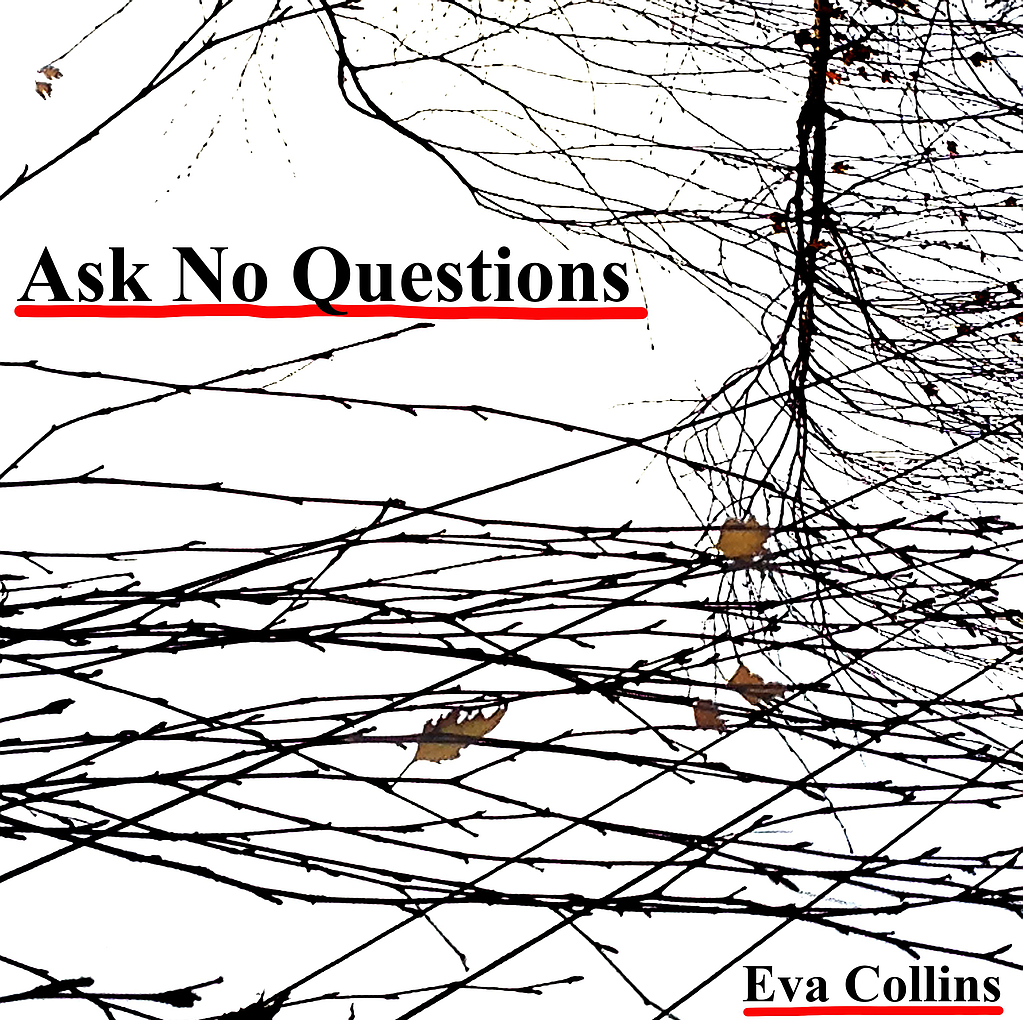
Ask No Questions
Eva Collins
Publication Date:
1 Jun. 2022
Format:
Paperback / softback
ISBN 9781922571342
With a third of Australians born and around half with one parent born overseas, migration stories are a crucial part of our national experience. In her verse novel, Ask No Questions, Eva Collins writes spare affecting lines about her own experience as a teenager when her parents decided to emigrate from Poland to Australia. She captures the loss and gain, grief and celebration with great poignancy. Simply written but deeply moving, Ask No Questions is accessible poetry that is particularly suited for young adult readers.
A beautifully constructed and engaging work. Ask No Questions charts an emigrant's journey with great clarity, humour, pathos, and a disarming directness that will connect with readers of all ages, and inspire others to recount their own stories of leaving their homelands to begin life anew on distant shores. – Arnold Zable
Eva's poetry is spare. She uses neither filler nor fancy, but communicates directly in an almost William Carlos Williams style. However, the sum result is similar: a poetry that is unembellished and real; personal yet unabashedly other; grounded — often with wit — in the sometimes sad and always unrelenting factual basis of the past, and the ongoing present of what-is. Hers is an important voice. – Jordie Albiston.
Eva Collins has through this series of deft and crafted observations distilled the mid twentieth century experience of European migration to Australia. It is books such as this, combined with a growing Indigenous literature, that will shape Australia's deepest, richest and most lasting sense of itself into the future. You cannot tell such a story until you have learned to live in two places at once, and Ms Kovalski-Collins has achieved that magical act in Ask No Questions with brilliance, wit, directness and intelligence in her own distinctively sparkling verse. A joy to read, it is a book to be grateful for. – Kevin Brophy
I found Ask No Questions to be most enlightening, original and great reading and think this would be an invaluable educational resource. This is a very important memoir that makes up Australia's rich Migration story. – Hass Dellal
Information
Book Type: Junior HighAge Group: 15 years +
Traffic Lights:
Class Novel: Yes
Good Reads Rating: 5/5
Literary Rating: 5/5
Review
This poetry collection is a memoir of the author’s emigration from Communist Poland to Australia in the late 1950s. As her father was Jewish, the family decided to leave Poland to avoid the rise of anti-Semitism, but immigrating to Australia plunges the family into an unfamiliar culture and climate. Beyond the necessity of speaking English and conforming with their Australian neighbours, they become different people in this new country, changing careers and names. Eva’s little brother asks What’s Poland? and when Eva later returns to Poland, she discovers her Polish is less fluent than a child’s. Her father told her she would return to Poland, but as she predicted, it was not the same “her” who went back.
This is a collection filled with contrast and subtle connections. When Eva and her family leave Poland, she is told to pack her bags and ask no questions. When Eva wonders why people hide in the undercarriages of trains to get out of Poland, or why valuables are hidden in her and her brother’s underwear, she is told to ask no questions. When her parents shut themselves in with a scratchy radio broadcast and talk to their friends in whispers, Eva is again told to ask no questions. Eva’s parents were trying to protect her from knowing too much in a country where a stray comment at school could lead to your apartment being wire-tapped. Later, when Eva’s mother starts drinking and shuts herself in her room with the blinds down, we see how the need for repression and silence stayed with her. Eva’s parents told her to Forget the past, but building a new life was more difficult for her mother.
Other connections and contrasts are more positive. An incident where one of Eva’s classmates spoke out against the regime in school and attracted the attention of the authorities is contrasted with an experience Eva has in Australia. She talks in class and gets the strap—it may be painful, but the pain is temporary. Eva plants a chestnut in Poland, so there will be something of her left behind, and she plants a gumnut in Australia before she returns to Poland. Split between two homes, it’s not just Poland that Eva misses—Borscht in Warsaw now reminds her of her father’s cooking, and Melbourne.
Eva was changed by the move, and she will always wonder what her life would have been like if she had stayed. But she thinks she would have wondered what life in Australia would have been like if they hadn’t come here. An author’s note at the beginning and end adds more historical context and information for readers curious about the period.
This is a stark, spare book, capturing deep emotions in small moments. The use of blank verse and text placement gives the writing a simple, understated feeling. The powerful imagery transports readers to the blindingly bright streets of St Kilda, the smoky café at the Hotel Bristol in Warsaw, a damp boat floating through a vast grey ocean. Eva depicts the xenophobia of Australians: customers at the shop she works at demand she speaks English, a girl at school tells her to go back to where she came from, and most heart-wrenchingly, Eva’s surprise at hearing Polish spoken loudly in the streets of Warsaw instead of in hushed tones in private.
We see her growing understanding of the persecution her father escaped as she visits his old apartment in what would later become the Warsaw Ghetto. We also see the struggle of the adults as they are forced to work without their previous qualifications—the people at the nightclub Eva’s parents frequent, once surgeons and judges and teachers, now pray that they can get through another 60 hour work week.
Themes
1950s, Communism, Soviet Poland, anti-Semitism, xenophobia, immigration, culture, totalitarianism, poetry collection, historical, Australian history
Content Notes
1. Mum and dad “skol” a shot of vodka. (p. 26). Mention of adults drinking at a nightclub (p. 52). Eva’s mother has a drinking problem (p. 56). Eva buys a litre of vodka to bring to friends’ for lunch (p. 72). Eva’s family are confused by a neighbour saying “good onya” about the gift of a tomato, thinking he’s calling it an onion, and wonder whether he is drunk (p. 41). Cigarettes (p. 53, 71). 2. Mentions of anti-Semitism. “Dad, you killed Jesus!” (p. 27). 3. Fight between Eva and another girl at school who was bullying her (p. 43).
How to Use the Site:
MEMBER DISCOUNTS: For Member pricing, please sign in to your Book Curator account.WISH LISTS: Signing in will also allow you to create a wish list. Just choose the heart icon on each product you want to add. To view your list, click on the heart icon at the top right of your screen.
COMPARING PRODUCTS: To compare products, use the scales icon.
TO VIEW OR COMPLETE YOUR ORDER: Click on the cart icon at the top right of your screen.
SHIPPING: Enjoy the low flat rate of just 12.95 shipping and handling to anywhere in Australia, no matter how large your order is.
